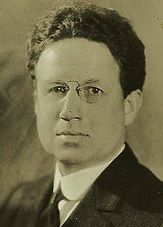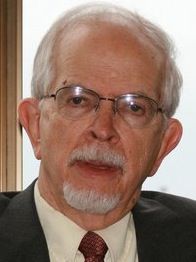
Publisher:
Bonnie King
CONTACT:
Newsroom@Salem-news.com
Advertising:
Adsales@Salem-news.com

~Truth~
~Justice~
~Peace~
TJP
Jun-29-2012 19:53

 TweetFollow @OregonNews
TweetFollow @OregonNews
Presbyterians Next Up for Divestment Vote
James M. Wall Salem-News.comThe Presbyterian Church could divest from three U.S. corporations which support, with their products, Israel’s occupation of the West Bank and Gaza.
 Two Israeli soldiers guard Palestinian children in Hebron. |
(CHICAGO) - Jimmy Carter wrote a New York Times oped piece this week, A Cruel and Unusual Record, which states flatly:
| “ |
The United States is abandoning its role as the global champion of human rights. Revelations that top officials are targeting people to be assassinated abroad, including American citizens, are only the most recent, disturbing proof of how far our nation’s violation of human rights has extended. This development began after the terrorist attacks of Sept. 11, 2001, and has been sanctioned and escalated by bipartisan executive and legislative actions, without dissent from the general public. As a result, our country can no longer speak with moral authority on these critical issues. |
” |
Carter’s focus is on “moral authority”. This is the same authority that must, in all cases, motivate the nation’s churches.
Less than a week after the publication of Carter’s powerful call for “moral authority”, the Presbyterian Church, U.S.A., a major US Protestant denomination, meets in Pittsburgh for its General Assembly. During the week of June 30-July 7, delegates will conduct church business, develop church policy, and consider action on moral issues.
One of those issues is whether or not the Presbyterian Church’s investment portfolios should divest from three U.S. corporations which support, with their products, Israel’s occupation of the West Bank and Gaza.
The Presbyterian General Assembly follows a similar national meeting of the United Methodist Church, where the same issue was presented to delegates attending the denomination’s quadrennial General Conference. The Methodists chose to continue their relationship to the occupation, rejecting a divestment resolution.
The Methodists did advocate a boycott of Israeli products produced in occupied areas. This action, however, did not have the specificity of withdrawing investment of the denomination’s own funds from the occupation.
For the next week, delegates to the 2012 Presbyterian Church General Assembly will have their opportunity to take their own moral stand on occupation, by voting for or against the conduct of three US corporations, Caterpillar, Hewlett-Packard, and Motorola Solutions, the same trio that escaped Methodist divestment.
Only a few of the delegates, or most likely, none of them, will recall votes taken, or not taken, in the 1923 and 1924 Presbyterian General Assemblies.
Any delegate who did look back to 1923 and 1924, would be reminded that each of their votes will be recalled in history as a personal “moral authority” decision.
It was 87 years ago, at the 1924 Presbyterian GA meeting in Indianapolis, that GA delegates awaited the result of of an investigation of one of their most prominent preachers, Harry Emerson Fosdick. (pictured here).

Ordained a Baptist, Fosdick had been called in 1915 to preach in the pulpit of New York City’s First Presbyterian Church. Fosdick continued as a professor at Union Theological Seminary in New York, and agreed to preach at First Presbyterian with the understanding that he would have only preaching duties there.
On May 21, 1922, during the height of the fundamentalist-modernist controversy, which involved, among other issues, the evolution-creationism conflict, Fosdick peached a pro-modernist sermon, Shall the Fundamentalists Win? In his sermon, Fosdick, by then a leading modernist proponent, insisted that the bible was not to be taken literally, but was rather, a record of the unfolding of God’s actions.
The 1923 General Assembly ordered an investigation of Fosdick’s “views”. When it became a strong probability that delegates to the 1924 GA would censure Fosdick after the commission’s investigation, he resigned from First Presbyterian and returned to his own Baptist fellowship. He was immediately called to the pastorate of the New York Park Avenue Baptist church, where John D. Rockefeller, Jr., was a member.
Rockefeller, one of the world’s richest men, provided funding to construct the non-denominational Riverside Church in the Columbia University neighborhood, which still stands as one of the nation’s most significant religious centers. When the church building was completed in October, 1930, Fosdick became its preacher, a position from which he preached, lectured, wrote books, and became one of the major Protestant voices of the 20th century.
Fosdick also wrote the words for a hymn which became a rousing liberal Protestant rallying call, God of Grace and God of Glory.
Any delegate who reflects back on Fosdick’s period of service as a Presbyterian preacher, should take a careful look at the opening line of the fourth verse of that hymn, words that should resonate with General Assembly delegates. That verse begins:
| “ |
Save us from weak resignation to the evils we deplore. |
” |
The vote between investment and divestment by the Pittsburgh General Assembly will involve a decision on whether or not the Presbyterian Church will continue its financial support of Israel’s occupation. From Fosdick’s perspective, whose sermon on fundamentalism ended his career as a Presbyterian preacher, if there is an evil we deplore out there, we should never resign ourselves to it.
It is hard not to conclude that Fosdick would have vigorously opposed a permanent military-enforced occupation of another people. He would certainly have been appalled at the story that appeared in the Guardian newspaper a few days before the 2012 GA opened.
The story involved a delegation of eminent British lawyers who reported to the Foreign Office their findings from a trip to the West Bank and Israel.
The report concluded that Israel treats every Palestinian child “as a potential terrorist”. This belief, the report notes, may be leading to a “spiral of injustice”. It also “breaches international law in Israel’s treatment of child detainees in military custody”.
| “ |
The nine-strong delegation, led by the former high court judge Sir Stephen Sedley and including the UK’s former attorney-general Lady Scotland, found that “undisputed facts” pointed to at least six violations of the UN convention on the rights of the child, to which Israel is a signatory. It was also in breach of the fourth Geneva convention in transferring child detainees from the West Bank to Israeli prisons, the delegation said. Its report, Children in Military Custody, released Tuesday, June 26, was based on a visit to Israel and the West Bank last September funded and facilitated by the Foreign Office and the British consulate in Jerusalem. |
” |
Pictures like the one above, and distributing findings of the mistreatment of Palestinian children, provide a troubling background against which one segment of the GA Presbyterian delegates will attempt to make their case against divestment by promoting “investment” in the Palestinian economy. That case is on shaky moral ground.
As a start, investment in an occupier’s prison economy sanctions an illegal occupation, which is immoral and evil at its core.
Those church bodies that refuse to divest from Israel’s occupation support Israel’s oppressive treatment of the prisoners of that occupation. They are also failing in their moral duty to confront the American public and the American government with a prophetic proclamation that, as Jimmy Carter wrote in the New York Times, we have since September 11, 2001, “extended our nation’s violation of human rights”.
Israel’s occupation began long before 9/11. Since 9/11, rhe occupation has increased in its brutality, its size and its unrelenting mistreatment of the Palestinian people. The occupation is a prime example of the violation of human rights described by Carter, who does not mention Israel, since his Times essay is focused on his own government.
There is no question in my mind, however, that Israel, supported by its American lobby allies and its Zionist Israel-firsters in the American media, government, education circles and the churches, has served as a role model for the American government.
As a result, a small Middle Eastern nation, obsessed with “terrorism” and masters of political spin, has successfully led a world superpower to abandon what Carter properly describes as its “role as the global champion of human rights”.
It is not as though the Presbyterian General Assembly is alone in debating how it should confront the occupation. Secular bodies have moved in rapid succession on the eve of the Presbyterian General Assembly, to distance themselves from further financial involvement in the occupation.
This week the Rachel Corrie Foundation on Socially Responsible Investment, reported:
| “ |
Morgan Stanley Capital International (MSCI) removed Caterpillar from its World Socially Responsible Index, a list that socially responsible investment (SRI) funds use to determine their investments. |
” |
This was followed by a decision by TIAA-CREF to divest “its socially responsible fund, the Social Choice Fund, of the Caterpillar stock held, worth over 73 million dollars.” A month earlier, $900,000 of Caterpillar stock was dumped by the Friends Fiduciary Corporation (FFC), the financial arm of the Quakers.
For those of us who do not follow such matters closely (unless you have a teacher or a librarian in the family), TIAA-CREF is described by Wikipedia as a “financial services organization that is the leading retirement provider for people who work in the academic, research, medical and cultural fields.”
Further support for a decision to divest by the Presbyterians came in a personal letter addressed to “All Commissioners and Advisory Delegates 220th General Assembly, Presbyterian Church (U.S.A.)”. The letter was signed by a long list of Palestinian Christians in the U.S. and in the Middle East.
The letter begins:
| “ |
We, the undersigned Palestinian Christians, write to express our strong support for those Presbyterians urging the church to divest from Caterpillar, Hewlett-Packard, and Motorola Solutions, companies that profit from and enable Israel’s military occupation of our land and violations of our human rights. This past June witnessed the 45th anniversary of the start of Israel’s occupation of the West Bank, Gaza Strip, and East Jerusalem. Since that time, Israel has denied millions of Palestinians living in the occupied territories the most basic civil and political rights, while relentlessly colonizing our land to build Jewish-only settlements in contravention of international law. In the process, Israel has been systematically destroying the two- state solution that for decades has been the cornerstone of international efforts to make peace between Israelis and Palestinians. |
” |
Somewhere, I like to think the spirit of Harry Emerson Fosdick is joining in this chorus to encourage the Presbyterian General Assembly delegates to take the human rights path called for by former President Jimmy Carter.
And just maybe, former Presbyterian preacher Fosdick will lead the Presbyterians in singing, God of Grace and God of Glory.
| “ |
**** *** *** *** *** Readers who want to receive updates on the activities of this year’s General Assembly, will find telephone reports available each day. The reports will be provided by Presbyterian News Service Coordinator Jerry L. Van Marter, who will recap each day’s events and decisions, beginning Saturday, June 30. To reach the VoiceLine reports ― a partnership between PNS and Presbytel, the denomination’s toll-free telephone information service ― call 502-569-5000, extension 2012 or toll-free at 800-728-7228, extension 2012. A five-minute recap of the entire Assembly will be available shortly after adjournment at noon on Saturday, July 7. The picture above of a young Harry Emerson Fosdick, is from Wikipedia. The photograph of soldiers and children from Hebron, appeared in the Guardian and is from Abed Al Hashlamoun/EPA. |
” |
 Journalism was Jim Wall’s undergraduate college major at Emory University, Atlanta, Georgia. He has earned two MA degrees, one from Emory, and one from the University of Chicago, both in religion. An ordained United Methodist clergy person; he and his wife, Mary Eleanor, are the parents of three sons, and the grandparents of four grandchildren. They live in Elmhurst, Illinois.
Journalism was Jim Wall’s undergraduate college major at Emory University, Atlanta, Georgia. He has earned two MA degrees, one from Emory, and one from the University of Chicago, both in religion. An ordained United Methodist clergy person; he and his wife, Mary Eleanor, are the parents of three sons, and the grandparents of four grandchildren. They live in Elmhurst, Illinois.
Jim served for two years on active duty in the US Air Force, and three additional years in the USAF (inactive) reserve. While serving with the Alaskan Command, he reached the rank of first lieutenant. He has worked as a sports writer for both the Atlanta Journal and Constitution, was editor of the United Methodist magazine, Christian Advocate for ten years, and editor and publisher of the Christian Century magazine for 27 years, starting in 1972. Time magazine wrote about the new editor, who arrived at the Christian Century determined to turn the magazine into a hard-hitting news publication. The inspiration for Wall Writings comes from that mindset and from many other sources that have influenced Jim’s writings over the years, including politics, cinema, media, American culture, and the political struggles in the Middle East. Jim has made more than 20 trips to that region as a journalist, during which he covered such events as Anwar Sadat’s 1977 trip to Jerusalem, and the 2006 Palestinian legislative election. He has interviewed, and written about, journalists, religious leaders, political leaders and private citizens in the region. You can write to Jim Wall at jameswall8@gmail.com. http://wallwritings.me/2012/06/09/new-jerseys-9th-cd-voters-say-no-to-aipac/
Articles for June 28, 2012 | Articles for June 29, 2012 | Articles for June 30, 2012
Quick Links
DINING
Willamette UniversityGoudy Commons Cafe
Dine on the Queen
Willamette Queen Sternwheeler
MUST SEE SALEM
Oregon Capitol ToursCapitol History Gateway
Willamette River Ride
Willamette Queen Sternwheeler
Historic Home Tours:
Deepwood Museum
The Bush House
Gaiety Hollow Garden
AUCTIONS - APPRAISALS
Auction Masters & AppraisalsCONSTRUCTION SERVICES
Roofing and ContractingSheridan, Ore.
ONLINE SHOPPING
Special Occasion DressesAdvertise with Salem-News
Contact:AdSales@Salem-News.com

googlec507860f6901db00.html



Terms of Service | Privacy Policy
All comments and messages are approved by people and self promotional links or unacceptable comments are denied.
[Return to Top]
©2025 Salem-News.com. All opinions expressed in this article are those of the author and do not necessarily reflect those of Salem-News.com.